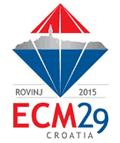Croatia is a member state of the European Union since July 1st, 2013. However, the country is not yet a part of the European Schengen Agreement. Consequently, individuals travelling from both EU and non-EU countries are systematically subjected to the formal ID/passport control on the entry points to Croatia. There is no customs control for visitors travelling from countries within EU.
The national currency of Croatia is Croatian Kuna (HRK), equal to 7.6 HRK to the Euro (November 2013). Cash in HRK can be retrieved at ATM’s which are plentiful across the country. International credit cards are widely accepted in hotels, stores, agencies, restaurants and shops, but only rarely in bars and night clubs.
The average monthly salary in Croatia is cca HRK 5.500,00 (October 2013) which equals to EUR 720,00. The per capita GDP is close to USD 15.000. The unemployment rate is one of the highest in EU (18%, 2013).
The economy is heavily oriented to tourism which provides approximately 1/6 of the national GDP (the total income from the tourist industry in 2013 was close to 7 billion EUR).
Education in public schools and universities is free of charge at all levels. Croatia has 7 state universities (in Zagreb, Split, Rijeka, Osijek, Pula, Zadar and Dubrovnik), and the largest and oldest is the University of Zagreb (established 1669).
The official language is Croatian, while in local communities where the ethnic minorities make more than 33% of the total population, the minority language becomes official as well by law. The local authorities may decide to introduce the second or third official language even if the related minority does not make a third of the population, for historical or other reasons. This was the case in Rovinj, where both Croatian and Italian are official languages.
In Croatia the emergency phone is 112 and all informations concearning health insurance are available in Croatian Health Insurance Found.





